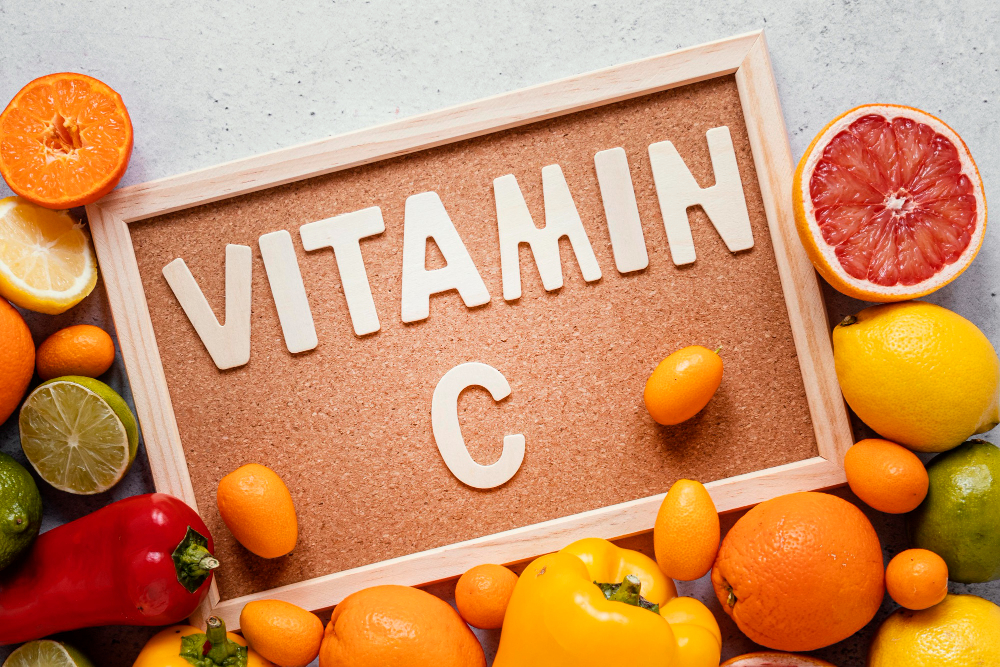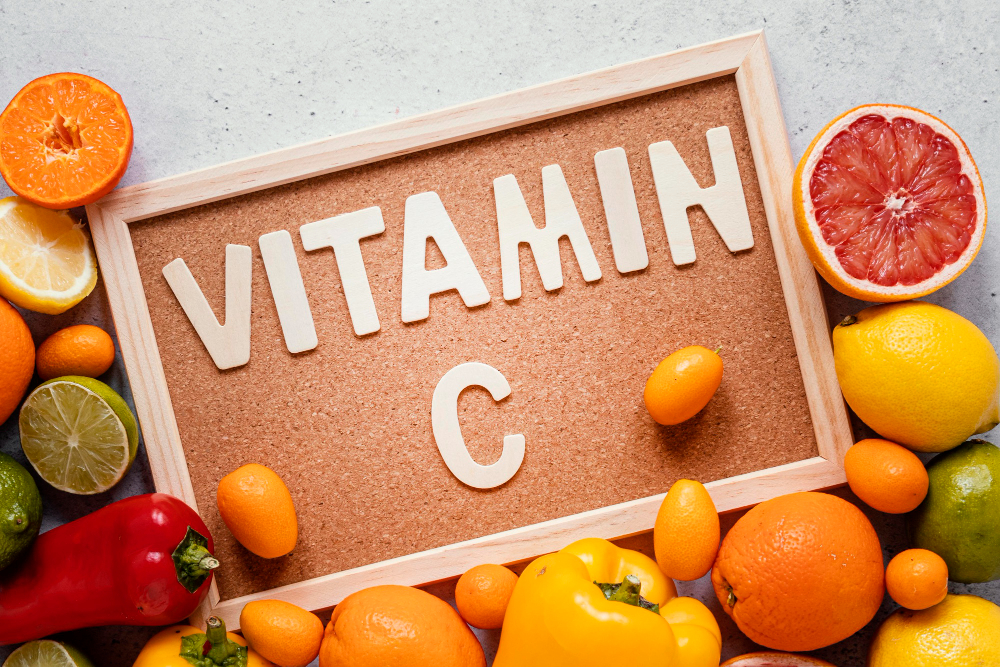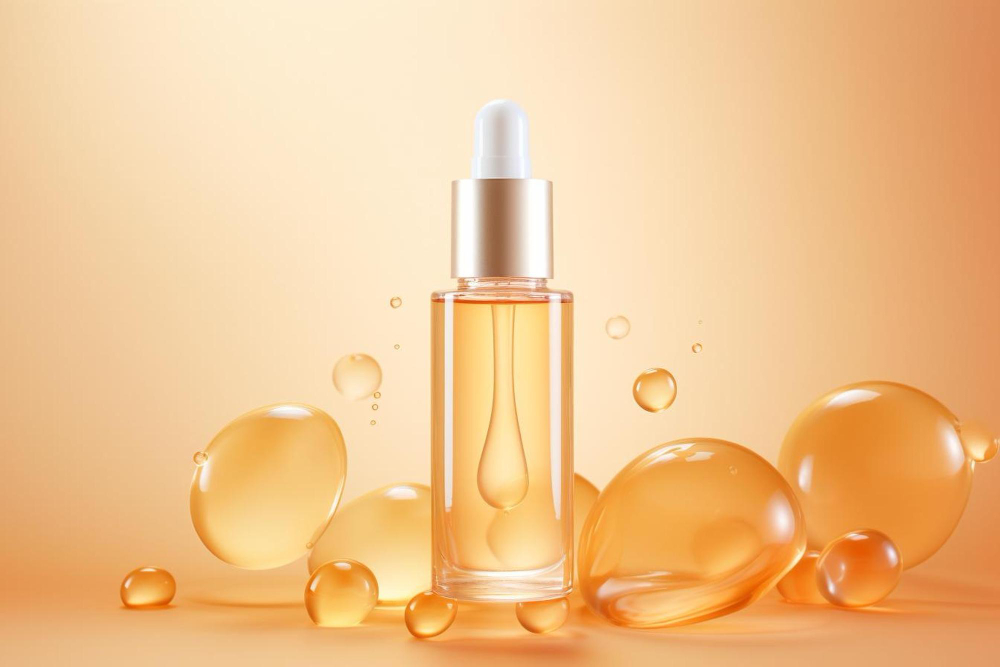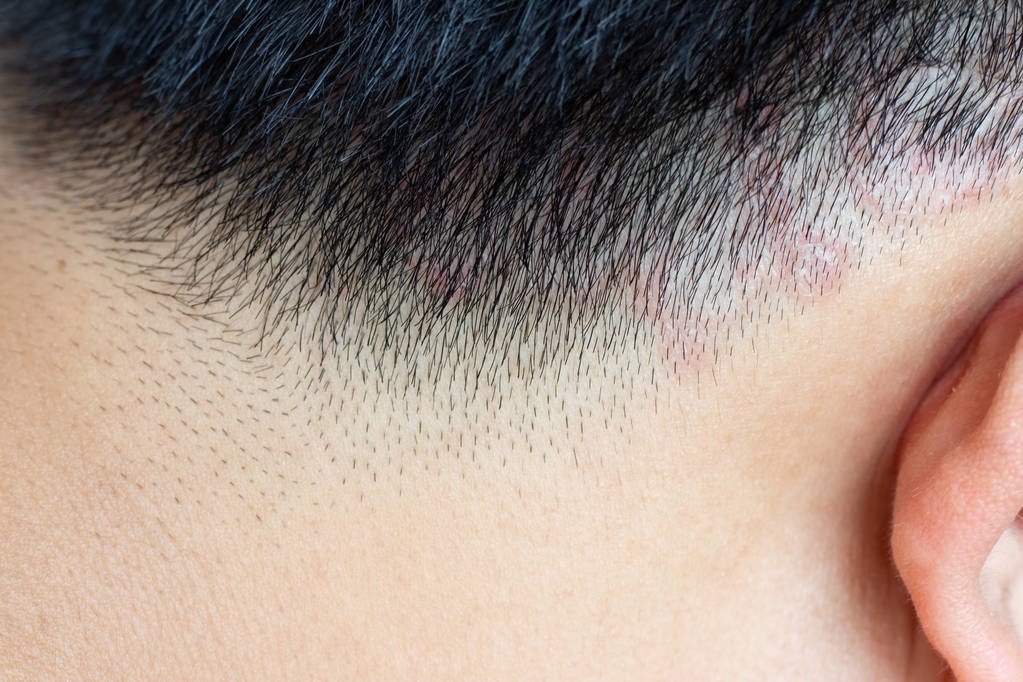July 19, 2024

Vitamin C is famous for its effective anti-inflammatory and antioxidant properties. In addition, it also provides moisture, improves skin texture and makes skin brighter. So what effect does vitamin C have on facial skin and how to supplement it to have bright, smooth skin?

1. What effect does Vitamin C have on facial skin?
1.1. Protect Skin Against the Harmful Effects of Ultraviolet Rays
Vitamin C has powerful antioxidant properties, helping to fight damage caused by free radicals created from ultraviolet rays. Regular exposure to ultraviolet rays makes the skin susceptible to peeling, roughness, dark spots and acne. Vitamin C helps quickly restore skin damaged by ultraviolet rays. Supplementing vitamin C for 3 months can improve mild to moderate skin damage, including skin tone, roughness, and wrinkles. Vitamin C is considered an antioxidant that protects the skin against the harmful effects of ultraviolet rays.
1.2. Changes in Skin Pigmentation
Hyperpigmented skin often appears as dark spots or patches due to overexposure to ultraviolet rays and environmental stress. Vitamin C helps effectively improve dark spots and signs of aging on the skin. It inhibits the production of the enzyme tyrosinase, supports melanin production and prevents skin pigmentation.
1.3. Reduce Wrinkles
Vitamin C is often present in many skin care products because of its ability to neutralize free radicals and fight skin damage. Research shows that vitamin C supplementation for 12 weeks can reduce wrinkles. People who regularly eat foods rich in vitamin C also have fewer wrinkles.
1.4. Enhance Collagen Production
Collagen is an indispensable component in skin structure. Vitamin C is essential for collagen production, which keeps skin smooth and youthful. Collagen also ensures skin elasticity and firmness. Supplementing vitamin C stimulates the production of collagen and elastin, helping the skin become firm and plump, preventing aging and restoring skin smoothness.
1.5. Improves Moisture
Vitamin C helps the skin retain water and participates in the hydration process, retaining water molecules under the skin epidermis, making the skin smooth and shiny. This reduces sebum secretion, reduces acne and reduces the risk of clogged pores.
1.6. Prevent Acne, Heal Scars Quickly
Vitamin C deficiency puts you at risk of Scurvy, which involves the weakening of tissues and organs. Supplementing vitamin C helps protect the skin against the harmful effects of free radicals and promotes the skin's repair and healing process. Vitamin C stimulates the formation of the epidermal barrier, promotes the differentiation of keratinocytes, and helps skin wounds heal quickly.

2. How to Take Care of Your Face with Vitamin C
To make the most of the benefits of vitamin C for your skin, you can supplement it in the following ways:
- Supplements from Natural Foods
Fruits such as guava, orange, and tangerine are rich in vitamin C, good for skin health. Tomatoes, cabbage, broccoli, and kohlrabi are also rich in vitamin C and should be added to daily meals.
- Oral Supplement
Supplement vitamin C as functional foods if the body does not absorb it well from natural foods. Take vitamin C with meals and divide it several times a day to improve absorption. Recommended vitamin C dosage according to age:
- Children 1-3 years old: no more than 15 mg/day.
- Children 4-8 years old: no more than 25 mg/day.
- Children 9-13 years old: no more than 45 mg/day.
- Children 14-18 years old: no more than 75 mg/day (men), 65 mg/day (women).
- Over 19 years old: no more than 90 mg/day (men), 75 mg/day (women).
In some cases, high doses of vitamin C supplementation are required and must be prescribed by a specialist.
- Use Skin Care Products
Masks, lotions, and serums containing vitamin C help the top layer of skin absorb directly, reduce wrinkles and prevent free radicals that cause aging. Limit product exposure time to the environment because vitamin C is easily oxidized.
Related blog posts

Dermatology
The Growing Role of AI in Healthcare
Artificial Intelligence (AI) has become an integral part of modern life, with its influence growing rapidly, especially in healthcare.

Dermatology
Understanding Psoriasis: Causes, Symptoms, and Treatment Options
Psoriasis is a chronic autoimmune skin condition that affects millions of people worldwide.

Dermatology
What is scalp ringworm?
Scalp ringworm is a fairly common skin condition. Let’s learn about scalp ringworm and how to treat it.